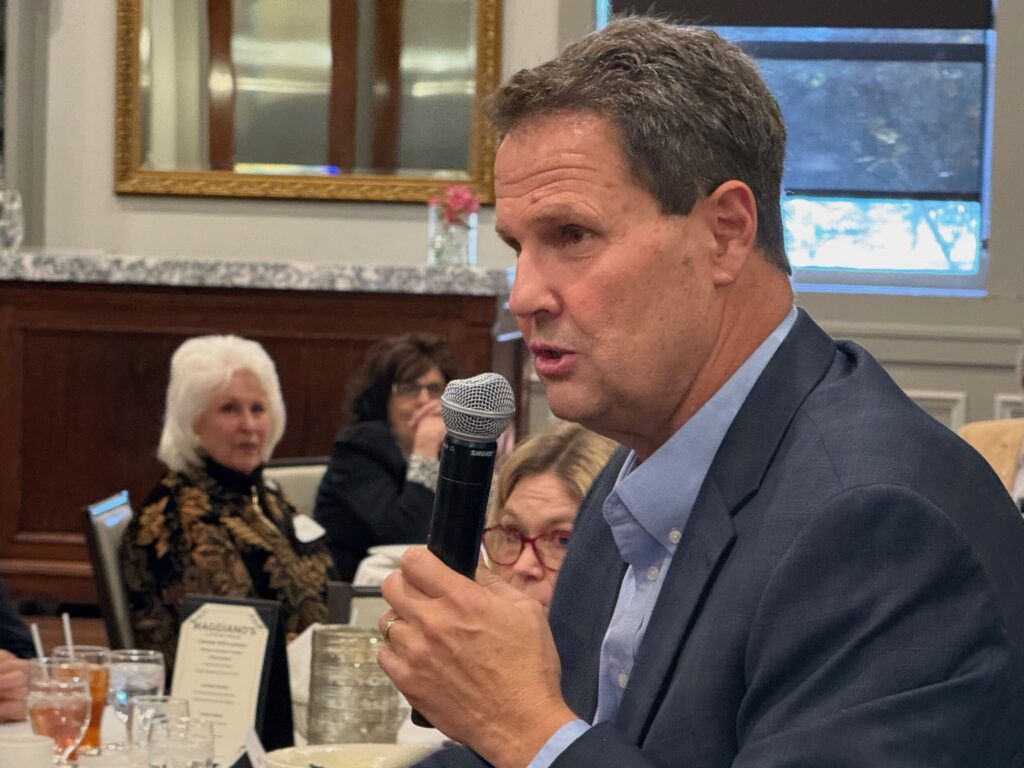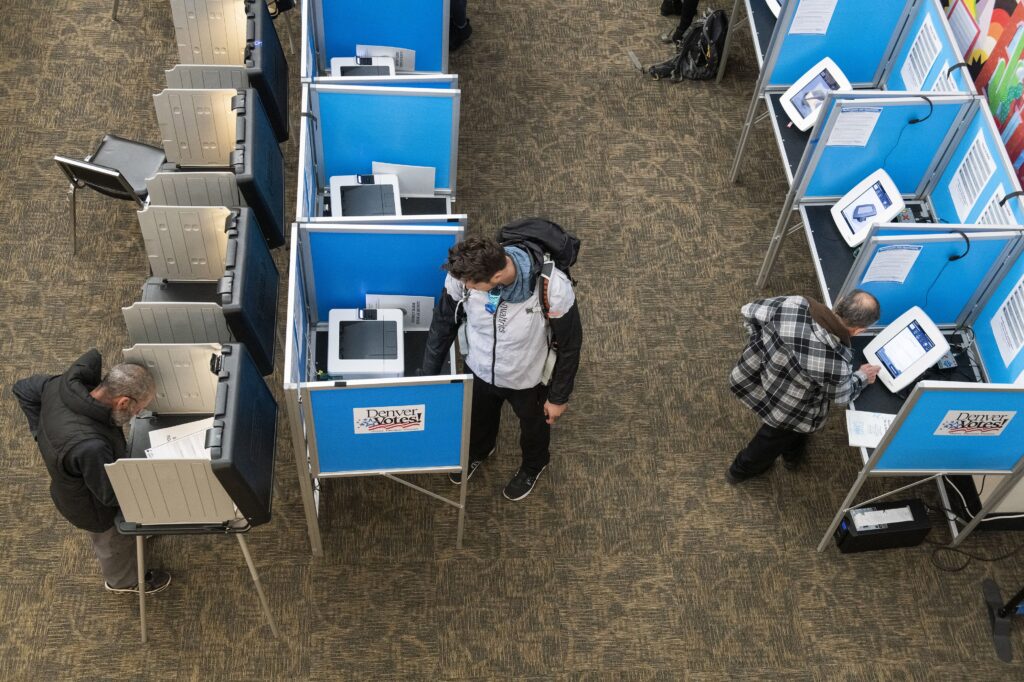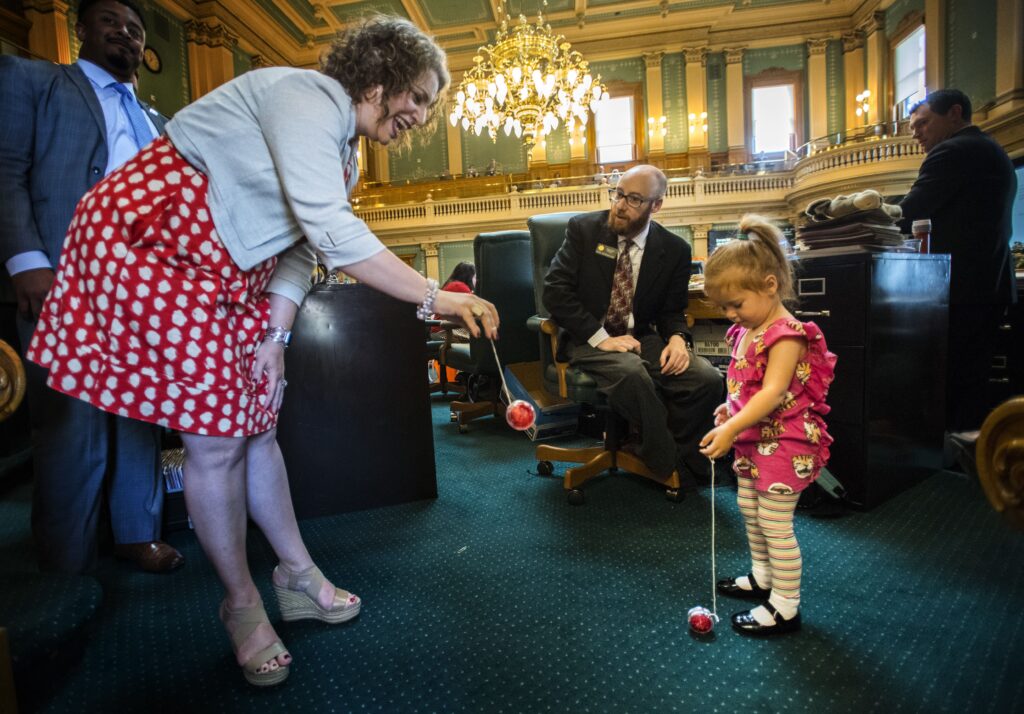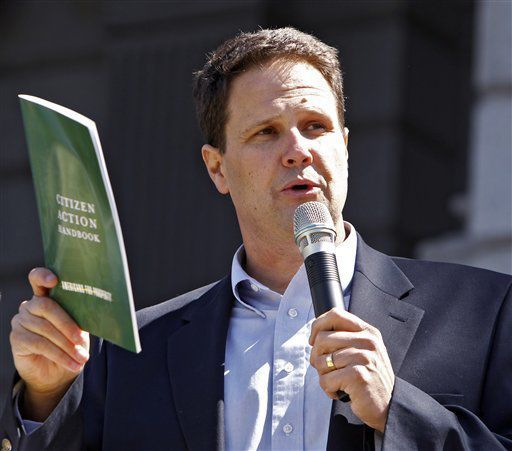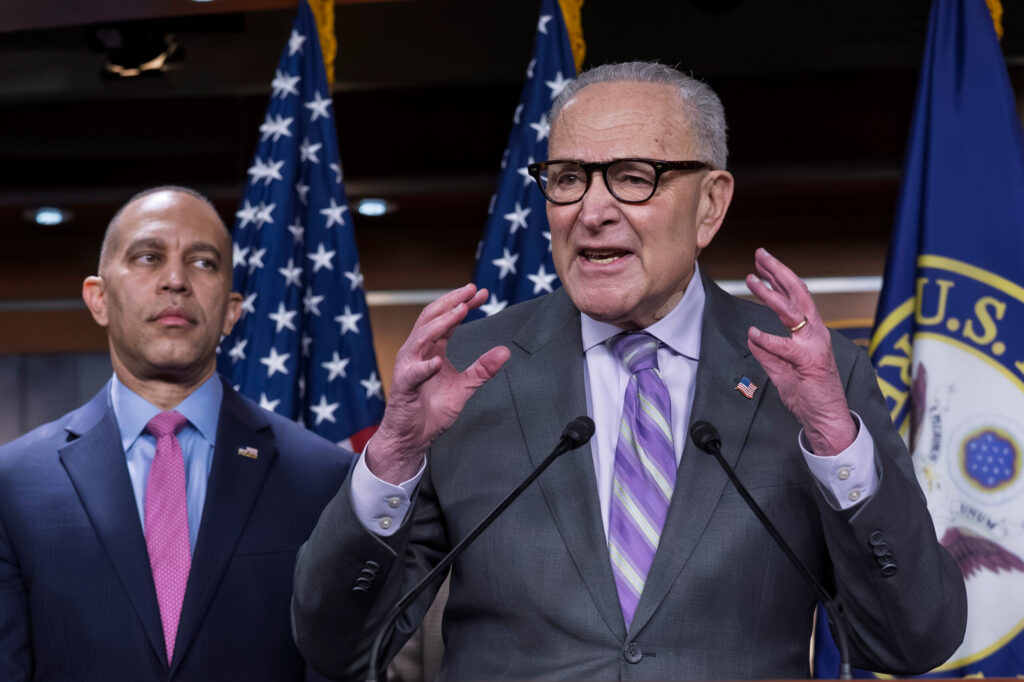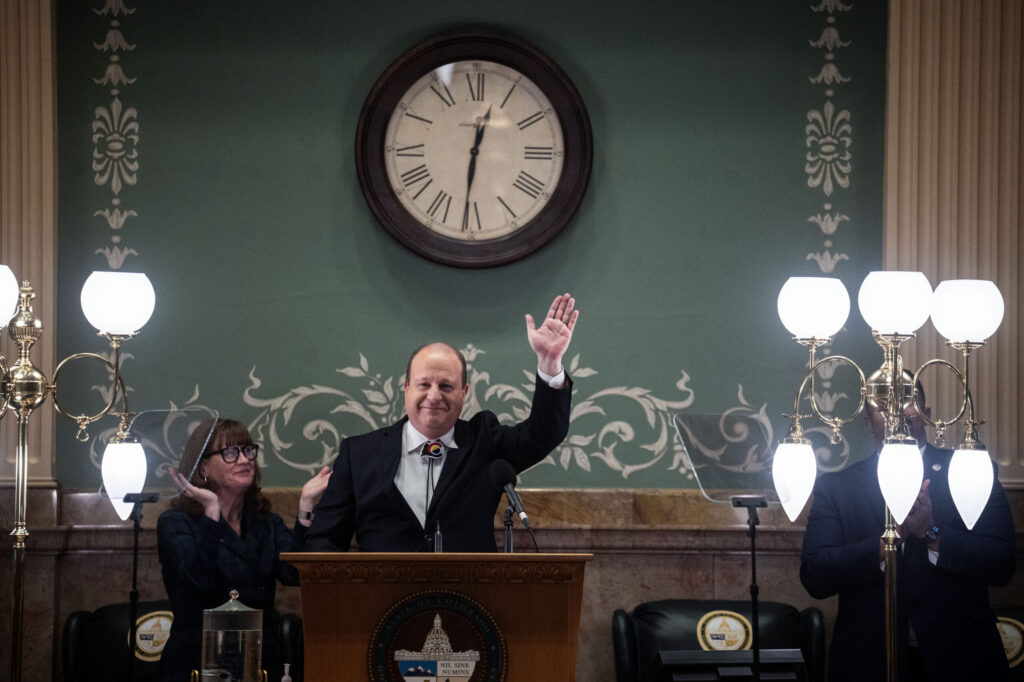Q&A with Dafna Michaelson Jenet | First year senator on faith, children, writing and mental health
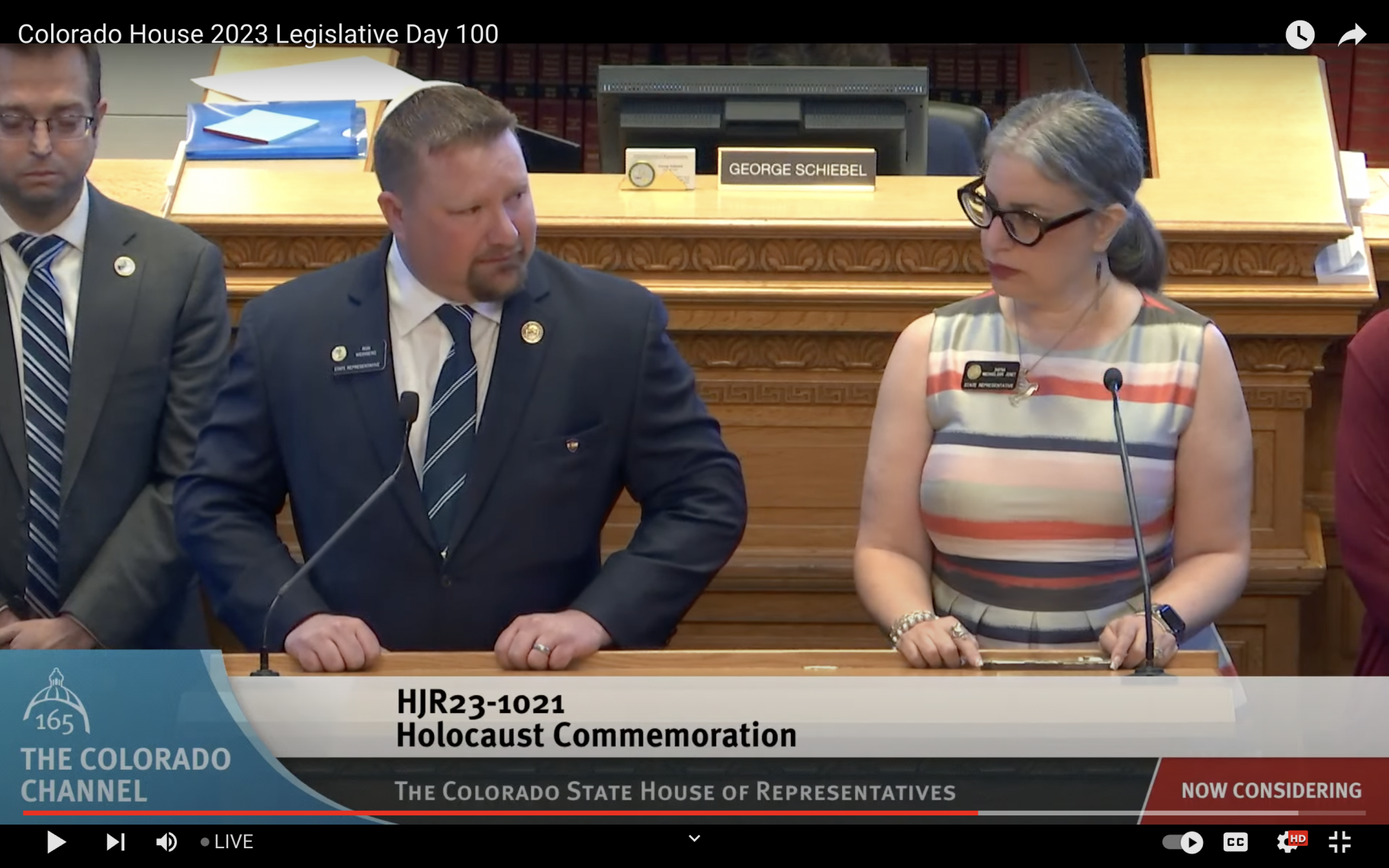
After serving more than seven years in the Colorado House, Sen. Dafna Michaelson Jenet is in her first year in the state Senate. She was appointed to her Senate seat by a vacancy committee last year after Sen. Dominick Moreno resigned for a job in Denver Mayor Mike Johnston’s administration.
Michaelson Jenet has carved out quite the path through the General Assembly, best known as one of the legislature’s strongest advocates for mental health services. That includes requiring insurance companies to cover annual mental health exams and a measure on behavioral health for youth and families.
A native of Tel Aviv, Michaelson Jenet is the oldest of seven children in a blended Jewish Orthodox family. The family moved to the U.S. when she was a child. By age 14, she had decided to pursue a different path, partly because she enrolled in a performing arts high school in Cincinnati. The artistic director informed her she had to participate in rehearsals or shows on Friday nights, and she pointed out she was Orthodox; his response was “go find yourself another school.”
“I decided if, if God gave me talent, maybe I was supposed to use it,” she said. That was hard on her family, but they were “outwardly supportive,” she added.
In addition to Cincinnati, she spent her formative years in New York and Philadelphia.
Michaelson Jenet returned to her Orthodox roots for college, attending Yeshiva University’s Sterns College for Women in New York.
She married her high school sweetheart after college, and moved to Colorado. The marriage didn’t last, but Michaelson Jenet’s connections to Colorado took flight.
Michaelson Jenet worked in the non-profit arena, including as director of the Holocaust Awareness Institute at the University of Denver. She also ran a program called March of the Living, which takes Jewish teenagers to concentration camps in Poland.
Her first child was born not long after, bringing her back to Colorado, working at the Jewish Community Center in Glendale and later at Denver Health as director of volunteer services and patient information.
By 2008, Michaelson Jenet decided to spend a year traveling to all 50 states to find and share stories of ordinary people solving problems in their communities. That became the first of three books, “It Takes a Little Crazy to Make a Difference,” published in 2015.
Her epiphany for the book came from a visit to South Dakota and learning about how people build community, and how to engage people when they don’t engage through religion, which she said is becoming more common. The community center is the answer, she said.
She has three children; her oldest, her stepson Ryan, is a warrant officer in the Marine Corps. Gavi, her daughter, just graduated from Colorado State University and is applying to grad schools to study comparative Jewish literature. Eytan, her other son, works for Amazon.
As she continues her first year in the Senate, Colorado Politics sat down for a Q&A with Michaelson Jenet.
Colorado Politics: What made you decide to run for the state legislature?
Dafna Michaelson Jenet: When my son was 9 years old, he attempted suicide at school.
When I came back from traveling the country, I started getting invited to trainings that were gearing women towards office, like the White House Project. That’s how I met Faith Winter through the White House project. I would attend these nonpartisan trainings and they were fascinating to me, but I never had a plan to run for office.
Then my son starts struggling mightily and I am fighting with the special ed departments to try and get him an appropriate evaluation. And his IEP, his individual education plan, comes back and says he can spend 80% of his time in the classroom. The kid has never spent in any grade, less than 80% of time in the principal’s office.
He was always in trouble, but it wasn’t until after his suicide attempt, I, when Children’s Hospital did a full evaluation of him that we learned he was on the autism spectrum, but by a hair, very narrowly on the spectrum.
He was not enough on the spectrum to be able to get him help for his spectrum behavior. It was a terrible problem. I was fighting and fighting and fighting
At the same time, I was going around to school districts through the Random Acts of Kindness Foundation, to do workshops on community building. I would go around to all these different school districts and I would talk to their SPED people and still did not come out with an appropriate IEP.
At around this time I’m volunteering at two of our juvenile correctional facilities. Long story short, I realized the boys were very much like my boy and made a joke to my friend: “I’m looking at colleges for my daughter and prisons for my son.”
The fact that the words came out of my mouth at all were horrific.
I ran into Commerce City Mayor Steve Douglas at a grocery store, who said “Dafna, I need you to run for office.” That was followed not longer after by a request from former state Rep. Jenise May, who had lost a re-election bid to Republican JoAnn Windholz.
I started talking to my husband and he said, “the problems you’re facing with Eyton, you can help with on the state level – you can’t help with on the city council level.”
CP: Your faith is critical to who you are as a person. How does that help keep you centered? Given that you have kind of evolved, where are you in your faith?
Michaelson Jenet: I’m still where I was as far as my Judaism is concerned in terms of being connected to it and committed to it. I am not Orthodox. Um, but that happened long before the legislature.
CP: How does it help you keep your sanity?
Michaelson Jenet: I attend the Tuesday morning Bible study. It is fascinating because it’s stuff I’ve never studied, the New Testament, and I’m able to see some connections and some through lines with the Torah. The reason that I go is because I know that my values come from my Judaism and I figure that those who participate in Bible study — their values come through their Christianity. And I felt very early on that it would behoove me to understand more about the values of Christianity so that I would be able to make what I call Colorado legislation as opposed to Democrat or Republican legislation.
CP: Where is Colorado still not meeting its obligations on the mental health issue?
Michaelson Jenet: So many places. We have a dire shortage of respite care. Right Now, if you go into the hospital for a suicide attempt, they’ll hold you for a couple of days until you’re no longer suicidal, and then they send you home. You don’t need home. You need to be in further care until you’re well, and then you’re ready for home.
But we don’t have any of that further care. So we’re a respite desert.
The other area is youth substance use disorder treatment. I’ve run bill after bill to put money towards youth substance use disorder treatment. And it blows my mind that we are still not seeing what we are told. Money is being reverted back from Human Services or the Behavioral Health Administration, from one of my bills for youth substance use disorder treatment.
They will tell you it is because of lack of workforce and lack of organizations willing to do the treatment.
So, we have two problems. One is our community-serving organizations are not willing to do substance use disorder treatment because it is not a make moneymaker.
That leaves our kids out in the cold.
CP: Tell me about the other books you’re written.
Michaelson Jenet: The second one is “Peanut’s Legacy,” and it is about losing my baby at 20 weeks.
I was trying to have a child with my husband; our children come from each of our prior marriages. He and I wanted to have a baby together very badly, and we tried for a long time to get pregnant. I lost the baby at 20 weeks and had to go through an abortion, and the whole process was very painful. I did a tremendous amount of writing about it. And “Peanut’s Legacy” is all of that writing to try and help people who are going through this process get through it and not feel like they’re alone.
The third book, which is coming out soon, is the “Three Speaking Method” and based on the TEDx events I’ve been doing for the past 14 years on public speaking training.
CP: What does Israel mean to you, in particularly in the context of what’s going on right now?
Michaelson Jenet: Israel is my ancestral homelands and has a very special place in my heart. I’m a very patriotic American, and I also am also a very patriotic Israeli. I hold a passport for that country as well as holding a passport for the United States. So I’m a dual citizen, and to me, it is my homeland.
It is the place where my family lives. It is the place where my family has been consecutively since the 1700s. It is my heart.



